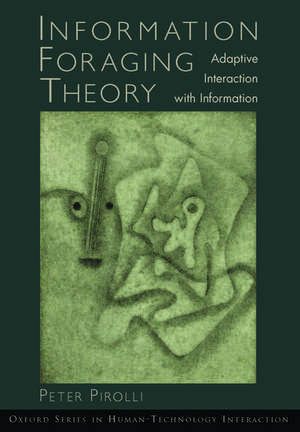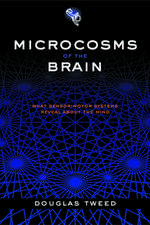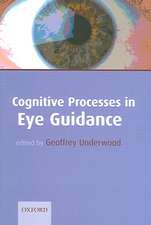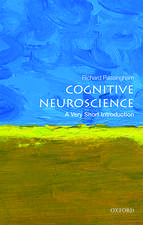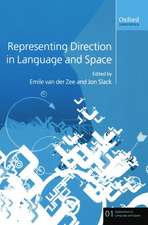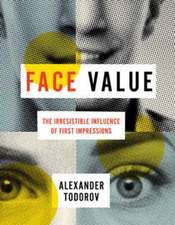Information Foraging Theory: Adaptive Interaction with Information: Human Technology Interaction Series
Autor Peter L. T. Pirollien Limba Engleză Paperback – 8 apr 2010
Preț: 327.51 lei
Preț vechi: 374.62 lei
-13% Nou
Puncte Express: 491
Preț estimativ în valută:
62.67€ • 65.60$ • 52.16£
62.67€ • 65.60$ • 52.16£
Carte tipărită la comandă
Livrare economică 19-25 martie
Preluare comenzi: 021 569.72.76
Specificații
ISBN-13: 9780195387797
ISBN-10: 0195387791
Pagini: 224
Ilustrații: numerous line drawings/tables
Dimensiuni: 251 x 175 x 18 mm
Greutate: 0.46 kg
Editura: Oxford University Press
Colecția OUP USA
Seria Human Technology Interaction Series
Locul publicării:New York, United States
ISBN-10: 0195387791
Pagini: 224
Ilustrații: numerous line drawings/tables
Dimensiuni: 251 x 175 x 18 mm
Greutate: 0.46 kg
Editura: Oxford University Press
Colecția OUP USA
Seria Human Technology Interaction Series
Locul publicării:New York, United States
Recenzii
This book significantly deepens our scientific understanding of a class of increasing important human activities. It will become a standard reference for a future research.
Nothing is as practical as a good theory. We need practical techniques beyond mere usability experiments for designing the information machines of the Internet and mobile appliances. In this book, Peter Pirolli supplies such a theory, driving the program to have a supporting science of HCI forward to the next plane: from mechanistic theories based on the limitations of cognitive mechanisms to an applied science that emphasizes and predicts adaptation to the information environment. In so doing he advances the core theories of information cognition themselves in the tradition of Simon, Newell, Anderson, and Brunswik.
In a field as rich and complex as the interaction of people with information systems, fundamental theoretical advances are rare. I recall still the excitement of reading (and often reviewing) Peter Pirolli's early papers on Information Foraging Theory. This book is not light reading, but it is worthwhile reading: both well founded and practical; expect to be challenged and expect to learn. I hope this book will not only inform its readers, but will also be an inspiration to future researchers as to what is possible at the fascinating boundary between mind and machine.
Pirolli's book represents a significant achievement in both science and engineering
This is a wonderful and exceptionally interesting book. It shows the key role that behavioral ecology, particularly foraging theory, plays in web searches and how psychology, computer science and behavioral ecology blend in a seamless manner in the study of this subject. Pirolli opens a new world for behavioral ecologists and computer scientists alike.
Information foraging is the most important concept to emerge from Human-Computer Interaction research in the last decade.
...a very interesting read...Pirolli's groundbreaking work and his "ah-ha" insight, since the late 1980s, occurred in just the environment that was needed for this insight to emerge...I applaud Pirolli and his having gone walkabout, shopping in the outback.
Nothing is as practical as a good theory. We need practical techniques beyond mere usability experiments for designing the information machines of the Internet and mobile appliances. In this book, Peter Pirolli supplies such a theory, driving the program to have a supporting science of HCI forward to the next plane: from mechanistic theories based on the limitations of cognitive mechanisms to an applied science that emphasizes and predicts adaptation to the information environment. In so doing he advances the core theories of information cognition themselves in the tradition of Simon, Newell, Anderson, and Brunswik.
In a field as rich and complex as the interaction of people with information systems, fundamental theoretical advances are rare. I recall still the excitement of reading (and often reviewing) Peter Pirolli's early papers on Information Foraging Theory. This book is not light reading, but it is worthwhile reading: both well founded and practical; expect to be challenged and expect to learn. I hope this book will not only inform its readers, but will also be an inspiration to future researchers as to what is possible at the fascinating boundary between mind and machine.
Pirolli's book represents a significant achievement in both science and engineering
This is a wonderful and exceptionally interesting book. It shows the key role that behavioral ecology, particularly foraging theory, plays in web searches and how psychology, computer science and behavioral ecology blend in a seamless manner in the study of this subject. Pirolli opens a new world for behavioral ecologists and computer scientists alike.
Information foraging is the most important concept to emerge from Human-Computer Interaction research in the last decade.
...a very interesting read...Pirolli's groundbreaking work and his "ah-ha" insight, since the late 1980s, occurred in just the environment that was needed for this insight to emerge...I applaud Pirolli and his having gone walkabout, shopping in the outback.
Notă biografică
Peter Pirolli is a Research Fellow in the User Interface Research Area at the Palo Alto Research Center where he has been pursuing studies of human information interaction since 1991. He is an elected Fellow of the Association for Computing Machinery Computer-Human Interaction Academy, the American Association for the Advancement of Science, the Association for Psychological Science, and the National Academy of Education.
